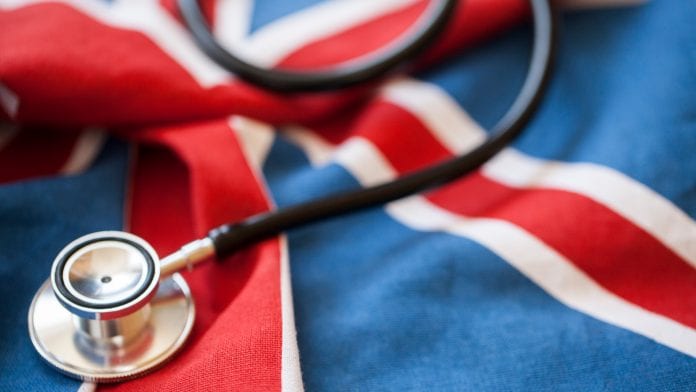
A new report has revealed how the NHS could save £89m a year on antibiotics by introducing accurate, point-of-care diagnostic tests.
A vast, national study has been conducted which has revealed how the NHS could save millions on unnecessary antibiotic prescriptions if it was to introduce accurate, point-of-care diagnostic tests. This could also go towards further the fight against antimicrobial resistance.
The findings from the study have been published in the Journal of Medical Economics. The report also found that £326m is currently being spent on unwarranted antibiotics per year.
Distinguishing between bacterial and viral infections
The study highlighted that using already available test could save the NHS up to £88m, but also showed that if POCTs that are yet to be made commercially available were introduced, the savings made could theoretically rise to £178m a year.
Antibiotics are often overprescribed as it can be difficult to distinguish between bacterial and viral infections from physical symptoms alone, and because some patients demand antibiotics, physicians often end up prescribing them for viral infections. Acute respiratory infections such as bronchitis, sinusitis and pharyngitis account for over two-thirds of total UK antibiotic prescriptions, even though most are caused by viruses that do not respond to antibiotics.
The report highlights that 80-90% accurate POCTs, which detect protein biomarkers specific for viral or bacterial infections, can provide physicians with the ability to distinguish between bacterial and viral infections, enabling more objective evidence for a diagnosis.
The cost of POCTs
To date, costs have prevented the universal introduction of POCTs into the NHS. However, a team of researchers from the US and Switzerland, led by Dr John Schneider at Avalon Health Economics LLC, have now discovered that the price of purchasing the required amount of POCTs does, in fact, offset the savings that arise from reducing the unnecessary prescribing of antibiotics.
By analysing National Institute for Health and Care Excellence (NICE) data and direct costs, the team concluded that British doctors were prescribing antibiotics for 50% of acute respiratory infections, whereas bacteria were probably only responsible for around 9% of these infections.
They calculated that the annual cost for this unnecessary prescribing was over £326m.
In contrast, the annual cost of purchasing POCTs to diagnose bacterial or viral infections and then treating those infections was much less, between £148m and £290m depending on the POCT, producing savings of up to £89m.
Dr Schneider said: “A major benefit of POCT is the ability to improve antibiotic stewardship in the primary and urgent care setting by providing tangible results that both increase diagnostic certainty and confidence to delay or withhold antibiotics when bacterial infection is unlikely.
“Without POCT, the UK health system spends over £326m annually and with POCT this can lead to over £36m to over £89m in annual savings depending on the type of POCT deployed.”
Fighting antimicrobial resistance
The report highlights that reducing the unnecessary prescribing of antibiotics would directly benefit patient health.
“Not only can point-of-care diagnostic testing help to prevent the misuse of antibiotics that leads to antibiotic resistance, which in turn benefits public and global health, but it is also beneficial to identify potential patients requiring isolation to reduce spread of disease and reduce healthcare spending and adverse event-associated morbidity carried by the individual,” added Dr Schneider.
To introduce POCTs universally, the researchers note that a lack of reimbursement is the major limiting factor, whilst other considerations include space to accommodate a range of technologies, time to train staff, regulatory requirements and historically based uncertainty about test accuracy.
However, these costs may be partially or completely offset by enhanced workflow and payment strategies, whilst significant changes in facilities and infrastructure are also not needed, they argue.








